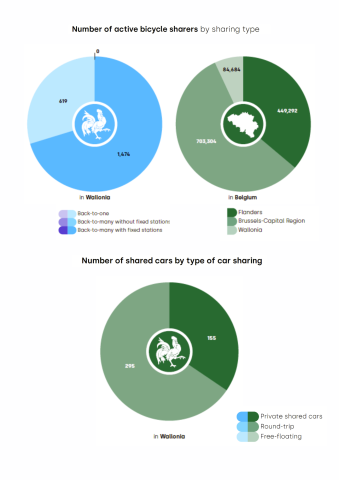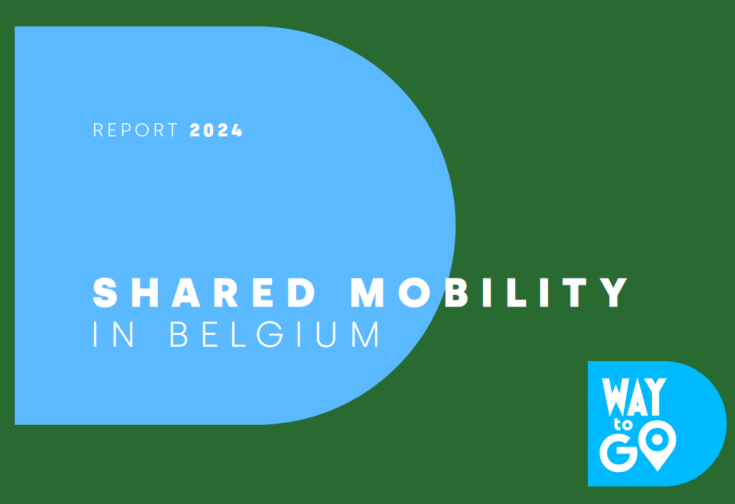Way To Go’s 2024 report: Shared mobility trends in Belgium
SMAPE partner Way To Go (formerly known as Autodelen.net) has recently published the 2024 Shared Mobility Report, which provides an in-depth analysis of Belgium’s shared mobility landscape. With nearly 50,000 shared vehicles in operation and 24 million trips made on shared bikes and scooters, shared mobility is becoming a crucial part of sustainable transport networks.
Read the full report in English
The report presents key trends in car sharing, bike sharing, and scooter sharing, highlighting how different regions are integrating these services and where further efforts can help improve accessibility, sustainability, and multimodal transport solutions.
As members of the Shared Mobility Action Programmes Exchange (SMAPE) project, Wallonia is working towards strengthening shared mobility policies, optimizing service integration, and fostering a well-balanced mix of mobility modes with the support of the Advisory Partner Way To Go.
Key Figures of shared mobility in Belgium
At the end of 2024, Belgium had 49,461 shared vehicles, divided as follows:
- 21,721 shared bicycles
- 18,764 shared scooters
- 8,976 shared cars
Shared mobility continues to grow across the country, with users increasingly choosing flexible transport solutions that complement public transport and reduce car dependency. However, the rate of adoption differs across regions, pointing to the need for targeted policies that address specific mobility gaps.
Wallonia’s growing shared mobility network
Shared mobility in Wallonia is expanding, with notable growth in car sharing, bike sharing, and multimodal services. The 2024 report provides key figures on Wallonia’s shared mobility sector:
- Car sharing in Wallonia has grown by 18% in the past year, with increasing interest from both private users and businesses.
- Bike-sharing programs have expanded, particularly in urban areas looking to reduce congestion and promote cycling. The availability of e-bikes and new docking stations has contributed to this growth.
- Shared scooters are emerging as an alternative in select cities, offering a flexible option for short-distance travel.
- Multimodal integration is improving, with more shared mobility services being linked to public transport networks, helping users shift away from private car use.

For projects like SMAPE, these insights contribute to ongoing efforts to improve shared mobility policies across Europe. By focusing on data-driven decision-making, optimizing multimodal transport solutions, and fostering collaboration, the project supports the continued growth and evolution of shared mobility networks.
With the right policies and investments, shared mobility can become a pillar of sustainable urban transport, offering flexible, efficient, and environmentally friendly travel options for more people across Belgium and beyond.

